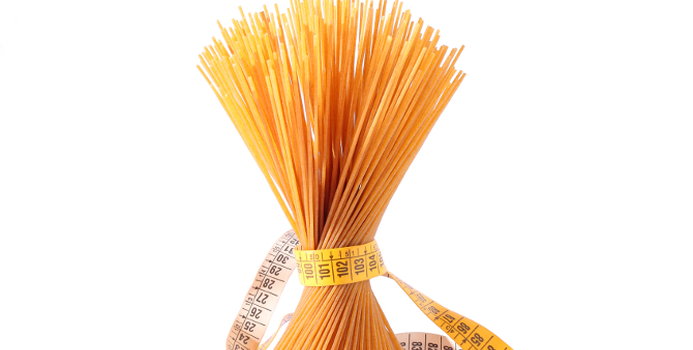White pasta is a popular food around the world. But how healthy is this food for you, really? Pasta sometimes gets a bad rap due to the high amounts of carbohydrates it contains. This article breaks down the nutrition of white pasta, and gives you the truth behind the myth. Be sure to read it before your next meal!
Carbohydrate
In general, white pasta is composed almost primarily of simple carbohydrates. So what are simple carbohydrates? Unlike complex carbohydrates, which are typically found in vegetables and whole grains, and take a long time to digest completely, simple carbohydrates are found more often in sugary foods and white breads and pastas. Simple carbohydrates are dangerous in that they are quickly digested and excreted from the body. This can be problematic for a variety of reasons. First, foods such as simple carbohydrates that are quickly digested and excreted do not stay in the stomach for a long time--and because of this, they can contribute to over eating. For example, you may eat a large meal composed of simple carbohydrates--but since the food rapidly is emptied from the stomach, you may feel hungry again in a relatively short period of time, and therefore may eat more food than if you ate complex carbohydrates to begin with. Simple carbohydrates are also dangerous due to the fact that they can cause a rapid spike in blood sugar, followed by a subsequent crash. This typically leads to feelings of nausea, vomiting, dizziness, and can even lead to coma or death in extreme cases. For best results, try to avoid white pastas in order to achieve better nutritional status.
Calories
Typically, pasta is often thought of as a relatively calorically dense food--and because of this, it is avoided by a lot of people in an attempt to lose weight. But how accurate are these charges? In reality, white pasta in and of itself is really not that calorically dense. As discussed above, white pasta is composed almost primarily from carbohydrates--and per gram, carbohydrates contain approximately 4 calories. Compare this to fat, which per grams contains 9 grams--over twice the amount that is found in carbohydrates. So where does the claim that pasta is fattening come from? In general, the reason that white pasta has gained a reputation as being a food that can contribute to the development of obesity stems from the fact that serving sizes of pasta have doubled or even tripled in size over the past few years. According to the USDA, one serving of pasta is equal to a half of a cup--but it is not uncommon to find restaurants that serve up to two cups of pasta per plate. It is no surprise then that these large serving sizes are contributing to the development of obesity around the world.



